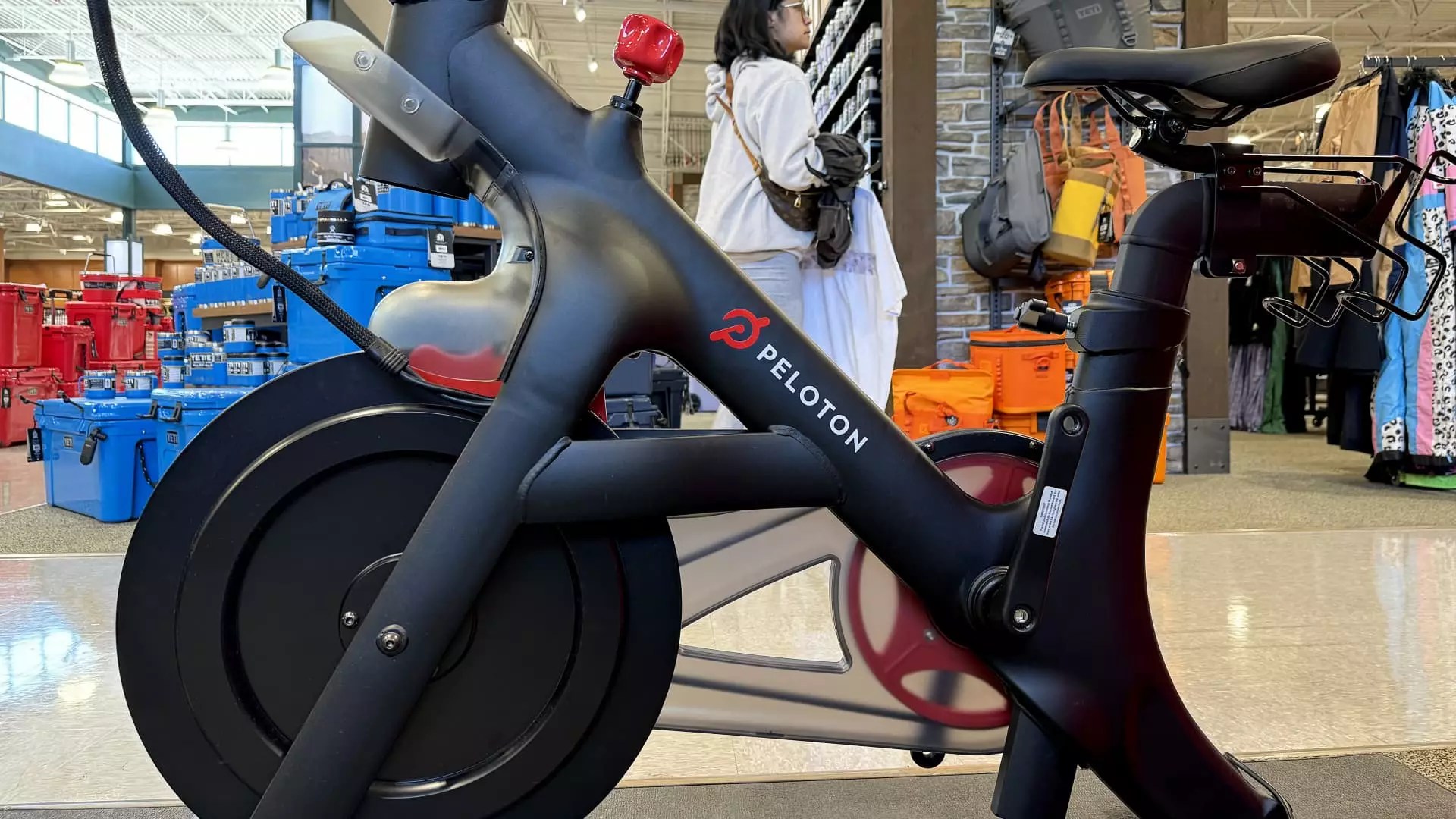Peloton has always been at the forefront of the fitness revolution, but its latest initiative, the Repowered marketplace, introduces a paradigm shift that might just redefine how both the company and its users engage with their fitness equipment. The launch of a dedicated platform for reselling used gear aligns perfectly with the growing trend of sustainability and conscious consumerism. In an era where home fitness equipment often becomes an expensive decorative piece rather than a functional tool for exercise, this marketplace aims to breathe new life into underutilized bikes and treadmills.
Empowering Consumers with AI
One of the standout features of Repowered is its integration of a generative AI tool to assist sellers in pricing their equipment. This is a brilliant move by Peloton. Not only does it empower users to set their own prices, but it also lends an air of sophistication and transparency to the transaction process. The power dynamic shifts away from arbitrary pricing structures often seen on platforms like eBay or Facebook Marketplace, where users can feel overwhelmed by the lack of guidance. Instead, Peloton is creating a user-friendly experience that encourages selling while accommodating the needs of the modern consumer.
However, one must consider whether reliance on AI could lead to potential pitfalls. While technology can provide a good baseline for valuing items, the emotional component of selling personal fitness equipment is often overlooked. After all, for many, their Peloton bikes are personal milestones in their fitness journey. There is a risk that the AI’s pricing suggestions may not fully capture the sentimental value attached to these items.
Enhancing Accessibility and Affordability
Peloton’s decision to reduce the activation fee for used equipment significantly—from $95 to $45—is an astute strategy to broaden its customer base. With many individuals currently feeling an economic pinch, this fee reduction fosters inclusivity, allowing more people to access Peloton’s premium fitness ecosystem. By prioritizing affordability, Peloton acknowledges the diverse financial capabilities of potential buyers, thus enticing a wider audience who may feel disenfranchised by the brand’s traditional pricing model.
This approach is clever not only from a marketing standpoint but also as a recognition of the growing resale economy. The potential of reaching a wider namespace of users—including those who previously considered Peloton’s offerings beyond their budget—reinforces the company’s commitment to democratizing fitness.
The Shift Toward Sustainability
In today’s world, sustainability isn’t merely a buzzword; it’s a critical ethos that consumers actively seek in brands. Peloton’s initiation of Repowered resonates with environmentally conscious consumers who prioritize circular economies. By encouraging the resale of used bikes and treadmills, Peloton is not just expanding its revenue streams, but also advocating for a reduced carbon footprint. This move is vital in an industry notorious for encouraging a cycle of constant purchasing and discarding.
The fitness industry has often been criticized for promoting unattainable ideals, which often leads to overconsumption and wastefulness. By creating a marketplace for second-hand equipment, Peloton is setting a precedent for other companies in the fitness sector, potentially reshaping industry standards.
Challenges and Competition Ahead
While Peloton’s Repowered marketplace appears promising, it won’t be without competition. Startups like Trade My Stuff, which specializes in used Peloton equipment, have already carved out a niche market. As the workout gear resale market heats up, Peloton will need to continuously innovate and improve Repowered to maintain its competitive edge. The online resale arena can be unforgiving, with platforms like Facebook Marketplace already well established as go-to places for second-hand sales.
For Peloton, this presents both an opportunity and a considerable challenge: reeling in the users who gravitate towards these alternative platforms while maintaining the brand’s integrity and loyal day-one fans. It will require a strategic blend of branding, user experience, and community engagement.
Restoring Growth Through Transformation
In light of its recent growth challenges, Peloton’s Repowered initiative exemplifies a calculated shift towards diversification. By tapping into the resale market, the company not only addresses the challenges posed by stagnant subscription sales but also effectively revitalizes its community. The decision reflects a broader strategic reinforcement of Peloton’s offering, providing both existing and potential customers with enhanced options and opportunities.
In a world where the perception of fitness brands is shifting rapidly, Peloton’s new foray into reselling gear marks a potential turning point—one that could restore trust and reinvigorate its brand image in an increasingly competitive landscape. As the old adage goes, “One person’s junk is another person’s treasure,” and with Repowered, Peloton is helping to turn the tide on fitness equipment wastage.


Leave a Reply